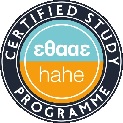 In today’s rapidly evolving world, where data is increasingly impacting, shaping and influencing every aspect of business, the role of AI in HR cannot be overstated. As organizations shift towards a data-driven approach to gain insights and improve efficiencies, AI is a powerful tool for HR practices.
In today’s rapidly evolving world, where data is increasingly impacting, shaping and influencing every aspect of business, the role of AI in HR cannot be overstated. As organizations shift towards a data-driven approach to gain insights and improve efficiencies, AI is a powerful tool for HR practices.
Let’s begin with defining Generative AI which refers to artificial intelligence systems that have the ability to produce content based on the datasets they have been trained on. While AI can enhance HR practices, make HR managers’ jobs easier and broaden their horizon, it is important to ensure fairness, authenticity and relevance to the market, organizational values, principles and culture. Most importantly, the use of AI should be a complementary resource rather than a solution on its own.
From an HR perspective, AI can strongly assist and add value to certain HR activities meaning that AI can help improve them, but it definitely doesn’t cover all. One of the important tasks to mention includes creating job descriptions and defining job roles. More specifically, AI algorithms can analyze data from various job postings, job specifications and CVs available on the internet. This capability helps with the crafting of detailed and accurate job descriptions tailored to specific roles, responsibilities, skills and requirements, enhancing candidate sourcing and selection. Additionally, this approach creates job descriptions that are thorough, relevant and have an innovative style, adding a different flair compared to the traditional ones. Therefore, the impact is high since AI has the capability to make the job adverts and posts more appealing and attractive, capturing the attention of a broader audience, including passive candidates or those who may not have been targeted previously.
Moving on to a second important activity, Generative AI plays a significant role in drafting and creating organizational policies, internal documents and procedures. By analyzing industry best practices and regulatory requirements, AI assists in generating ideas, structuring documents, and creating tables of contents. However, it’s crucial to note that while AI can help in the initial drafting process, human review and approval are essential to ensure the accuracy and legality of the policies. Generative AI serves as a valuable tool in policy development, but the final draft should be composed by HR Managers, ensuring and confirming compliance and effectiveness aligned with the organization’s business needs, principles and values.
Lastly, AI significantly influences the recruitment and talent acquisition process focusing on effectiveness and efficiency. There are three key indicators of AI’s impact:
- Swift analysis of numerous CVs to pinpoint specific skills, qualifications and experience, making it easier for HR teams to shortlist candidates.
- Enhance the candidate experience by interacting with job seekers through chatbots, which provide answers to inquiries and interview scheduling.
- Proactive prediction and forecasting of future talent needs by analyzing past hiring trends and current workforce demographics.
From partnering with our clients from various industries in the Greek market, while conducting our thought leadership surveys for many consecutive years, we see that AI is reshaping HR practices, making them more efficient and data-driven, while employees are looking for L&D opportunities focusing on AI with the aim to future-proof their skills (Workmonitor, 2024). With capabilities ranging from crafting job descriptions to predicting future talent needs, AI provides valuable support to some HR activities.
While we recognize the potential of AI, it’s essential to maintain a human-centric approach to ensure authenticity in HR leadership. Feel free to explore an additional article by Randstad on AI-related topics to further expand your knowledge and understanding of this rapidly evolving field, 2024 Workplace Predictions: Workers’ ambitions, driving flexibility and AI skills will be in focus by Sander van ‘t Noordende, CEO, Randstad.















